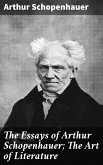In 'The Will to Believe, and Other Essays in Popular Philosophy,' William James delves into the realm of philosophy with a collection of essays exploring topics such as free will, religious beliefs, and pragmatism. James presents his arguments in a clear and accessible manner, making complex philosophical concepts easily digestible for a wider audience. His writing style is engaging, combining logic with a touch of personal reflection, which adds depth to his arguments. Being a prominent figure in American philosophy in the late 19th century, James's work reflects the intellectual and cultural milieu of his time. William James, a renowned psychologist and philosopher, drew inspiration from his academic pursuits and personal experiences to write 'The Will to Believe.' His background in psychology lent a scientific approach to his philosophical inquiries, offering a unique perspective on the topics he discusses in the book. James's reputation as a leading thinker of his era underscores the significance of his contributions to the field of philosophy. I highly recommend 'The Will to Believe, and Other Essays in Popular Philosophy' to readers interested in exploring philosophical questions in a clear and engaging manner. William James's insightful essays provide thought-provoking perspectives on key philosophical issues, making this book a valuable addition to any philosophical library.
Dieser Download kann aus rechtlichen Gründen nur mit Rechnungsadresse in A, B, BG, CY, CZ, D, DK, EW, E, FIN, F, GR, H, IRL, I, LT, L, LR, M, NL, PL, P, R, S, SLO, SK ausgeliefert werden.









